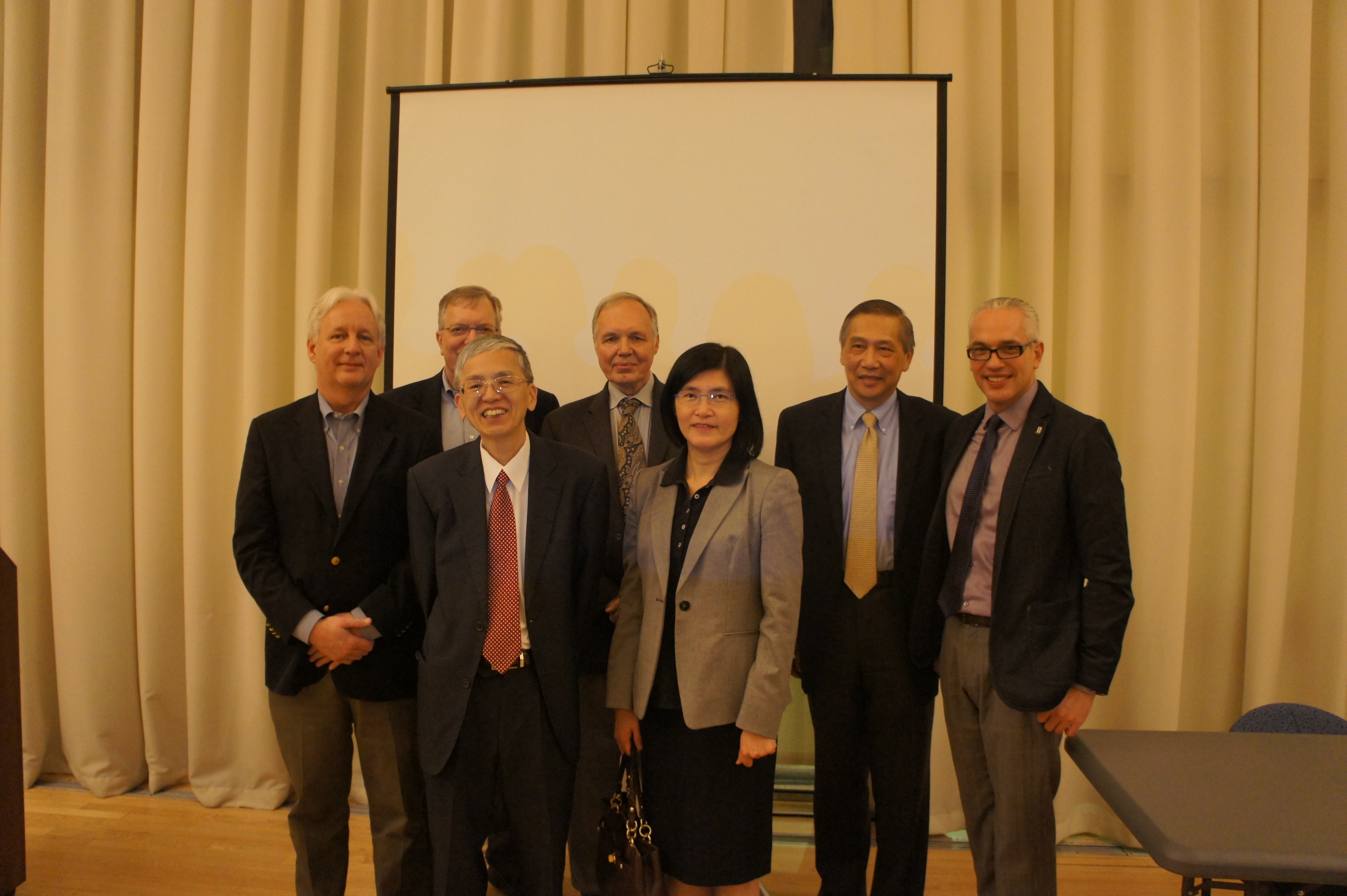Former Deputy Mayor of Taipei Dr. Chien-Yuan Lin speaks at 2013 Taiwan Forum at Boston University.

The theme for the 2013 lectures is Asia and the City. The focus is on the efforts of Asian cities to maintain their historical identity, while modernizing and responding to various Western influences. Other key points of interest are how policy makers and urban planners deal with pollution, population migration, and issues regarding sustainability.
The first speaker for 2013 Taiwan Forum was former deputy mayor of Taipei, Dr. Chien-Yuan Lin, now a professor at the Graduate Institute of Building and Planning at National Taiwan University. In his October 7 presentation about Urban Regeneration of Taipei City for Sustainable Development, Dr. Lin showcased three major approaches the Taipei City Government employed to “regenerate” the city in a sustainable way. The first is ‘e-government’ - the application of information technology. The development of intelligent infrastructure and services has seen the efficiency and quality of Taipei’s public services both improve, with less paper and fewer resources consumed.
The second is highly effective waste management and recycling plans. Implementation of a Per Bag Trash Collection Fee and rigorous recycling plans have helped Taipei reduce the amount of solid waste by 66%, and the recycling rate increases to 47.7%. The third approach is the development of ‘green infrastructure’. This has improved the city landscape, and also its green sustainability. An example of significant progress in the transportation area is the development of a public bike system (U-bike) now attracting a lot of use in Taipei. Dr. Lin concluded his presentation by emphasizing that regenerating a city does not mean simply tearing down old buildings. People need to consider all the interplaying economic, social, and physical factors and draw up a systemic plan to regenerate their city incrementally, step-by-step, and with vitality.
The presentation was followed by a discussion moderated by Dr. Paul McManus of Department of Strategy & Innovation at the School of Management at BU, a long-time advisor to Boston’s Mayor Thomas Menino. He marveled at the many similarities of the two sister-cities and was excited about the green infrastructure idea, especially the beautification of construction site fences. The audience raised several interesting questions about how Taipei deals with the challenge of providing affordable housing in its overly crowded city, and about flooding issues during typhoon season. The evening ended with a reception featuring green tea and spring rolls. The faculty and students attending the event were very impressed by the make-over Taipei has achieved, saying they would love to visit, or revisit, the city if they have a chance.
The lecture was co-sponsored by the Center for the Study of Asia, the Social Enterprise and Sustainability Initiative, and the Pardee Center for Study of the Longer-Range Future, all at Boston University.
(photo)Front row L-R: Dr. C.Y. Lin, Ms. Cynthia Huang, Director of Education Division, TECO Boston. Back row L-R: Dr. Paul McManus, Dr. Robert Murowchick, Dr. Grant Rhodes, Mr. Been Wang, & Dr. Eugenio Menegon.
